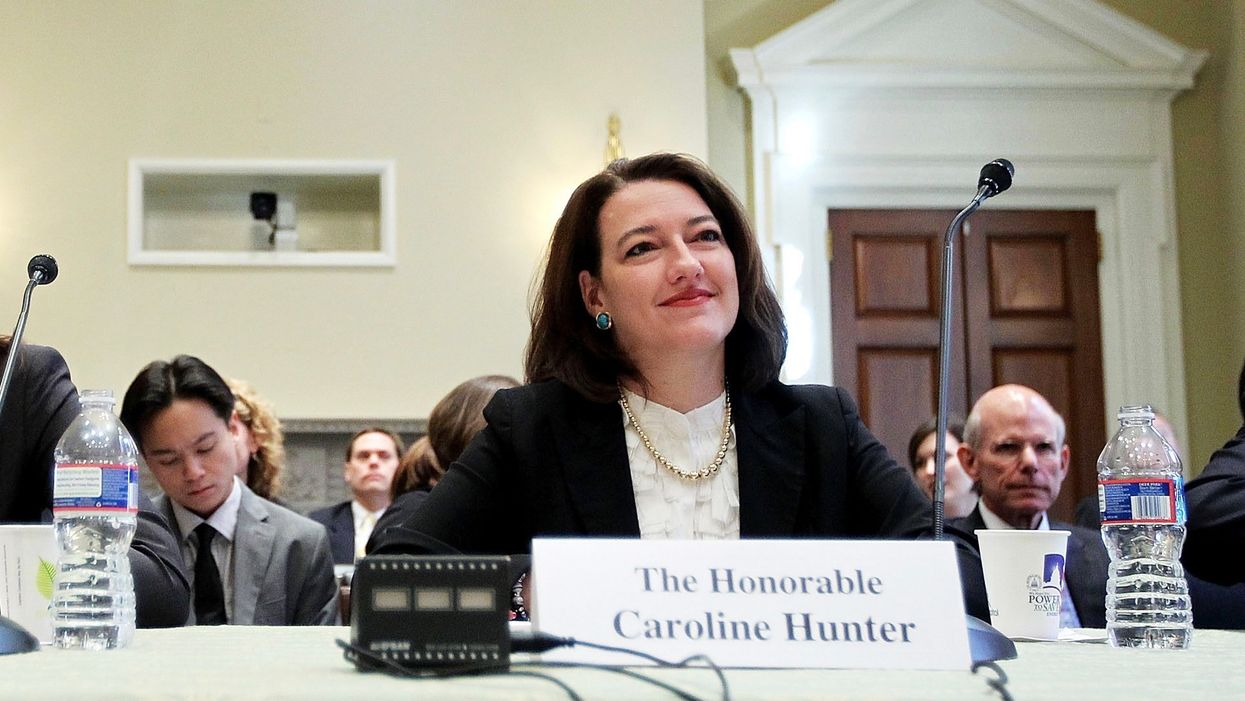Glimmers of rare bipartisan consensus appeared Thursday at the Federal Election Commission, where the panel's two Republicans joined the Democratic chairwoman in proposing regulation of political advertisements online.
At least at first blush, there seemed to be plenty of room for compromise between the freshly unveiled GOP plan and the one unveiled earlier in the week by Chairwoman Ellen Weintraub.
The main disagreement looks to be whether to exempt any sorts of campaigns from having to disclose their identities.
The potential for alignment became evident at the monthly meeting of the commission, where the usual partisan divisions about how to govern campaign finance have been compounded by a need for unanimity on the panel — where two seats have been vacant throughout the Trump administration and a majority is required for action.
Weintraub has revived a proposal, which died at the commission last year, that would require the financing of political ads to be disclosed when they're posted on Facebook and other social media sites. Her plan has already been endorsed by Steven Walther, who identifies as Independent but usually sides with the chairwoman.
The aim is to promote transparency and combat the sort of hacking Russia was able to execute with anonymity during the 2016 campaign. While the FEC is considering doing so by regulation, a bipartisan effort to do something similar through legislation has stalled in the face of Trump administration opposition.
The GOP commissioners, Matthew Petersen and Caroline Hunter, unveiled a similar plan. No vote was taken, but all sides signaled an eagerness to bridge the differences – especially on whether such disclosures should be required even on the tiniest of display ads.
"We're not on the same page yet, but obviously I hope we can be on the same page," Weintraub said. "We need to resolve this. It's really important and there's a strong demand for this. Advertising is moving more and more to the digital realm so it's critical to set standards and get rulemaking done."
The main difference between the two proposals is how disclaimers should be displayed and whether some exceptions should be allowed. Weintraub wants the funding source clearly displayed on ads. But Petersen and Hunter think there should be more flexibility for small Internet ads that don't have the space to accommodate the source's name.
In cases where the ad is too small for a legible disclosure, the Republicans allow for one-step-removed navigation to a secondary site with more funding information. But Weintraub was skeptical whether that would be too big a loophole, because too many people would not be bothered to take that extra step.
The Republicans say the exception is the only way to allow campaigns to buy really small ads, which are often favored by underfinanced candidates and small-time advocacy campaigns.
The commissioners said they would keep negotiating in hopes of an agreement by the time of the panel's next meeting in three weeks.
"Being an optimist, I don't think the differences are unbridgeable — we can find a way forward," Petersen said.




















Trump & Hegseth gave Mark Kelly a huge 2028 gift